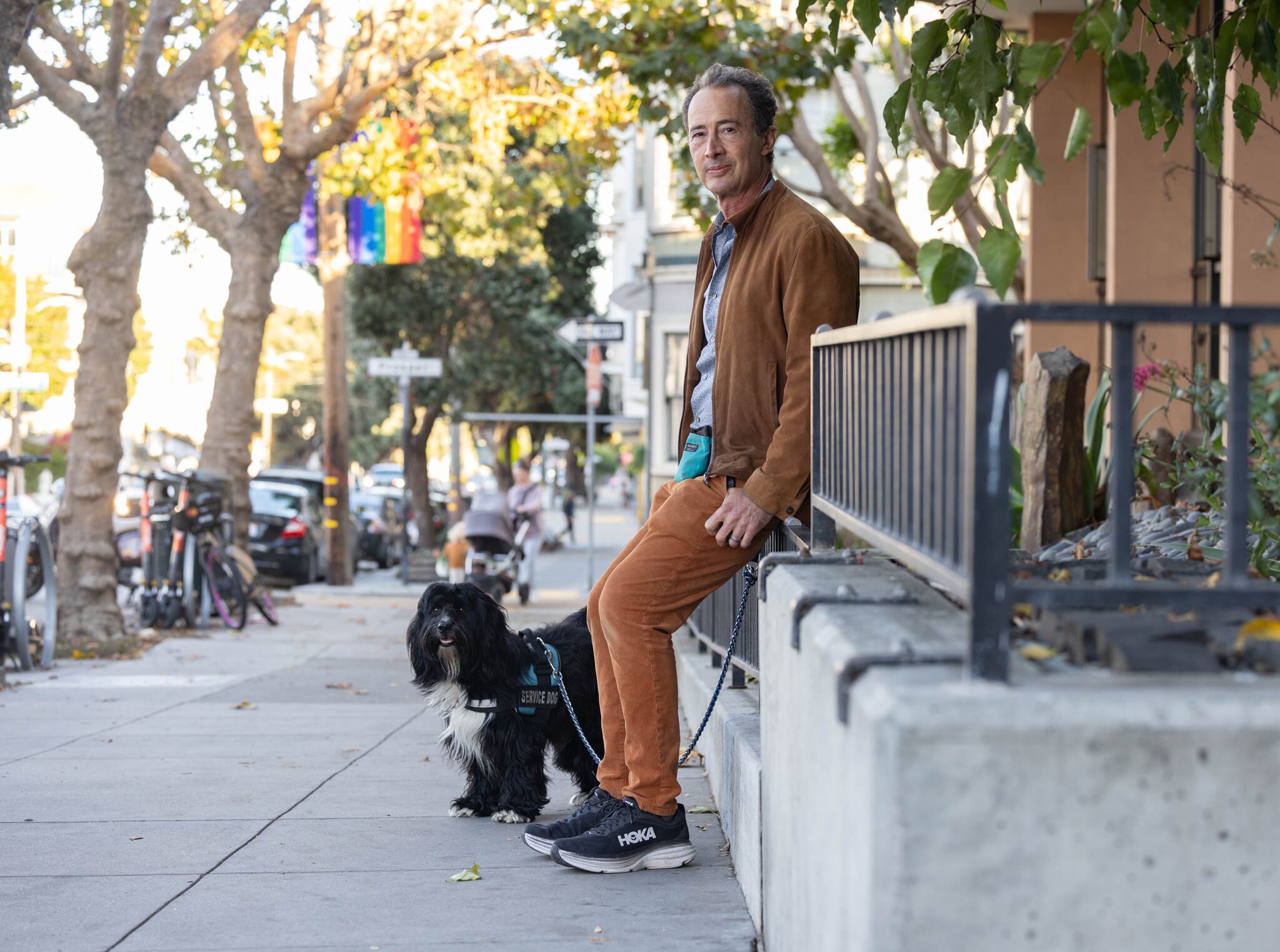A San Francisco law professor said his service dog was denied entry to a city library, putting him at risk of injury due to his unique medical condition, a lawsuit alleges.
The complaint, which was filed in federal court against the city Monday, alleges violations of the Americans With Disabilities Act and California Disabled Persons Act and is seeking damages for emotional distress and payment of attorney fees.
Clark Freshman, who filed the lawsuit, said he has a heart condition called an aortic aneurysm, which can cause his aorta to rupture if his blood pressure gets too high. Freshman says his service dog can detect if his blood pressure gets too high so he can take medication to lower his blood pressure quickly.
The lawsuit claims that when he was denied entry, he was also threatened by the security guard outside, who said he would cite the professor for loitering if he didn’t leave the area. The alleged threats raised his heart rate and increased his blood pressure, Freshman said.
“It was pretty upsetting, pretty scary,” Freshman said. “I felt my pulse and it was pretty high. I had to do some breathing exercises to calm down.”
“[Freshman] has a heart condition that can cause him to die if he is under emotional distress,” said his attorney, Aaron Clefton.
The complaint alleges Freshman was denied entry by a security guard at the Eureka Valley/Harvey Milk Memorial Branch of the San Francisco Public Library because his service dog, Jampa, did not have tags showing she was vaccinated against rabies.
The guard allegedly told Freshman that a dog had previously bitten someone inside a city building, and all dog owners were now required to show proof of rabies vaccination to enter city buildings.
Freshman offered to show digital proof of vaccination to the guard, but he said the guard would not look at it and threatened to cite Freshman with trespassing if he did not leave.
When Freshman showed up again on Feb. 7 with printouts of his dog’s vaccination records showing Jampa had gotten his rabies shot, the guard allegedly told him the records were not sufficient evidence to enter the library with his dog and again told Freshman he would cite him for trespassing if he did not leave the library.
Freshman said part of the reason he became so nervous—and experienced the symptoms he did—when the guard threatened to cite him with trespassing was because of past bad experiences with law enforcement.
In 2011, he said, Drug Enforcement Administration and San Francisco police officers executing a search warrant at his downstairs neighbors’ flat also searched his home and handcuffed Freshman. Freshman said that his home was not part of the warrant, that his home was illegally searched and that he was illegally detained.
Clefton declined to say how much in damages his client is asking for.
“Once we are served, we will review the complaint and respond in court,” City Attorney spokesperson Jen Kwart said.
